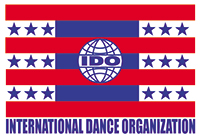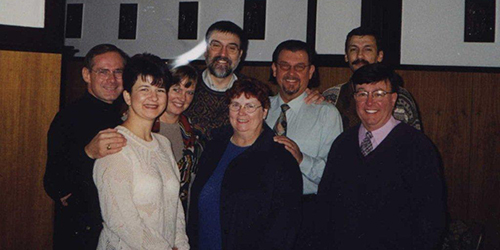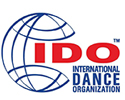The IDO History

The International Dance Organization (IDO) was founded as a non-profit organization on September 18, 1981 by Mr. Moreno Polidori, in Florence, Italy. The original founding member nations were Italy, France, Switzerland and Gibraltar. Mr. Polidori was appointed General Secretary and drew up the original statutes, by-laws and rules that governed the organization.
At that time, the main purpose of the organization was to provide Continental and World Championship competitions to both amateur and professional dancers, in all forms of dance, not covered by the World Dance & Dance Sport Council, the International Dance Sport Federation and the World Rock 'n Roll Confederation.
In 1990, Mr. Polidori took contact with the International Council of Ballroom Dancers (ICBD), which later became the WD&DSC, to apply for affiliated membership. He had a meeting with Mr. Rudi Trautz, Germany, who was then a Vice President of the ICBD, to present the IDO and the ideas behind the IDO. Mr. Trautz saw the great advantage for the ICBD to have the IDO under its umbrella and suggested at the ICBD AGM 1991, to form an affiliation committee in order to get an affiliation contract formulated. Mr. Nils-Hakan Carlzon was elected the chairman of this committee and also serving was Borge Jensen, Denmark, Wolfgang Steuer, Germany and Fred Bijster, Holland.
The Committee met with Mr. Polidori in July 1991, in Milan, Italy, and after two days of negotiations the affiliation terms were set, and in 1992, at the ICBD GM, the IDO became affiliated to the ICBD. During the following years Mr. Carlzon and Mr. Polidori developed a deep and friendly relationship and Mr. Polidori often mentioned that he would like Mr. Carlzon to become his successor.
In 1996, in order to insure the continued growth of the IDO, Mr. Polidori appointed a seven member commission to reconstruct the structure of IDO. Mr. Carlzon was selected to head this committee and each of the seven members was given a task to rebuild the Constitution, its By-laws and its Official Rules Book. After many meetings, both in person and through the Internet, a modern, new IDO began to take shape.

Photo of the first IDO presidium in Riesa, Germany in November 1999.
From left: Peter Szanto (Hungary / Vice president), Hana Svehlova (Slovak Republic / Vice president), Christa Wendt, Michael Wendt (Germany / Vice president), Kirsten dan Jensen (Denmark / Executive Secretary), Nils Hakan Carlzon (Sweden / IDO president), Jadran Zivkovic (Slovenia / Vice president) and Bill Fowler (USA / Senior Vice president)
Just two years after the committee was formed, a new IDO was presented at the Annual General Meeting, which included new Statutes, By-laws, Rules Book and a proposal that the seven member commission be elected as the IDO's first Presidium. After some opposition from the "old school", the new Presidium was elected in October, 1998. At this meeting a President, Senior Vice President, Executive Secretary and four Vice Presidents were elected. Each of the Vice Presidents serves as directors of the various IDO departments. In 2003, the presidium added two new Vice Presidential positions making the presidium nine members strong.
Following an IDO Presidium meeting decision in December 2003, Mr. Carlzon met with the President of the IDSF, Mr. Rudi Bauman, in Bern, Switzerland, in 2004 to finalize the terms of affiliation to the IDSF and sign the contract. The Agreement was accepted by the IDO and the IDSF, AGM's, respectively, later in 2004, and the IDO then became, through its affiliation with the IDSF, a part of the IOC family.
Since the new presidium took office, the IDO has increased its membership to well over 60 nations and contacts. and every indication shows that its future growth is eminent.
The IDO is now not only involved with the granting of Continental and International Competitions and Championships, but is deeply involved with many aspects of our dance industry. It is constantly striving to improve the quality of its dancers, through participation, its adjudicators through education, and national member images by being involved with the largest dance organization in the world. The various disciplines, through their committees, are convened on a regular basis to ensure that the IDO rules are always current and up to date with its membership wishes.






